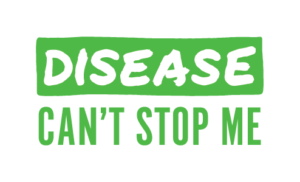The days after I was diagnosed with Multiple Sclerosis I had a choice —let the doctors tell me everything they know about my illness, or start to become an expert myself.
One doctors appointment later, I realized that there was no choice at all. My appointment was limited to 1 hour, and 30 minutes was used to test my body for symptoms. I knew that my doctor would not be able to tell me everything I wanted to know in the limited time I had.
Once we are diagnosed with a chronic illness, we have to become an expert in our chronic illness. No matter how many appointments we go to, we will never get enough information.
Below are some tips to follow in order to become an expert in your illness.
1. Find a doctor you trust
The first thing we need to do is find a doctor we trust. Here are some tips I received when I was first diagnosed that I find helpful today:
- If you know someone else who has the same chronic illness, ask them for a recommendation. I was lucky enough to find my current doctor through a recommendation. So far, it is the best doctor I have every had.
- Check online to find doctor reviews. There are many site such as https://www.healthgrades.com that will help you get feedback on doctors.
- Make sure the doctor views you as a person and not just another patient. When you have your appointment they should be interested in the total history of your illness, not just your current symptoms. The best doctors care about your overall health, not just your illness. The best doctor will spend the time to listen to you and try to connect the dots in your health. My current doctor will spend as much time as needed in his appointments. He may always be late, but at least I know I have his undivided attention.
2. Research with the acronym “ILLNESS”
- I- Investigate top websites
The first step is to research all of the top websites for your illness. Most illnesses have a foundation you can research, blogs you can follow, and medical journals. Take the time to make sure that the websites you read are full of factual information.
- L-Listen to experts
Only listen to experts when you want medical advice. There are many false publications on the internet. My doctor once told me: “It is OK to research your illness, but don’t believe everything you read. If they begin to tell you crazy cures to your illness, remember that if their was a cure, that person would have won the nobel piece prize.” It is alright to try remedies that you find on the internet. Just make sure you check with your doctor before trying anything extreme.
- L- List the symptoms to look for so you know when you are getting a flare up
Research the symptoms that can give you an early warning sign of a flare up. For every illness, the warning signs are different. Find out what those symptoms are, so you can better prepare yourself for the future.
- N- Never get caught in “the worst case”
The more you research, the more “worst case” scenarios you will read. We need to to understand what the worst case could be, and move past that to learn about success stories with our illness. It is like my mother once told me, “Plan for the worst and expect the best”. It is perfectly OK to be realistic about how your illness could progress, but there are also many stories on the internet of people who have your illness and have succeeded.
- E- Explain what your illness does to your body
The toughest question that I received after my diagnosis was “what is MS?”. During your research make sure you can explain your illness as simple as possible. For me, I explain MS as similar to someone plugging in a lamp. If you started to take a knife and rub on the cord, you eventually short circuit the lamp. That is what is happening to my body. My immune system is the knife and the lamp is my nervous system. A little duck tape and the lamp is as good as new.
- S- Support
Look for ways to find support, both in person and online. There are many support groups at hospitals around the world. Find a way to express your feelings to a group of like minded individuals. You can also join the Cant Stop Me Community on Facebook.
- S- Success Stories
Look for as many success stories as you can. The goal is to change your mindset so that you can fight and never let your chronic illness win. We will all have our times of struggle, but we need to keep striving for success.
Thanks,
Dave










